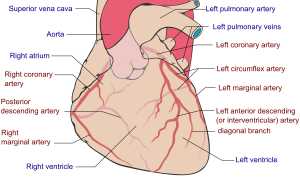04 Jan Characteristics of Poor Outcomes With Incomplete Coronary Artery Revascularization
MedicalResearch.com Interview with:
Edward L. Hannan, PhD, MS, MS, FACC
Distinguished Professor and Associate Dean Emeritus
University at Albany
School of Public Health
Rensselaer, NY 12144
MedicalResearch.com: What is the background for this study? What are the main findings?
Response: We have done a lot of work on complete revascularization (CR) vs. incomplete revascularization (IR) already, and as a follow-up it seemed as if there may be different types of IR that are associated with even worse outcomes relative to CR and other IR.
Incomplete revascularization is associated with worse outcomes if it involves multiple vessels, vessels with severe stenosis, or significant proximal left anterior descending artery vessel (PLAD) stenosis.
MedicalResearch.com: What should clinicians and patients take away from your report?
Response: Although interventionalists are undoubtedly aware of the dangers of incomplete revascularization, this study emphasizes that it is especially important to try to avoid it (consider CR or even CABG surgery) for certain types of IR.
MedicalResearch.com: What recommendations do you have for future research as a result of this study?
Response: Consider using randomized controlled trials to study this topic.
No disclosures
MedicalResearch.com: Thank you for your contribution to the MedicalResearch.com community.
Citation:
Edward L. Hannan, Ye Zhong, Peter B. Berger, Alice K. Jacobs, Gary Walford, Frederick S. K. Ling, Ferdinand J. Venditti, Spencer B. King. Association of Coronary Vessel Characteristics With Outcome in Patients With Percutaneous Coronary Interventions With Incomplete Revascularization. JAMA Cardiol. Published online December 27, 2017. doi:10.1001/jamacardio.2017.4787
https://jamanetwork.com/journals/jamacardiology/article-abstract/2666823?redirect=true
Note: Content is Not intended as medical advice. Please consult your health care provider regarding your specific medical condition and questions.
[wysija_form id=”1″]
Last Updated on January 4, 2018 by Marie Benz MD FAAD

